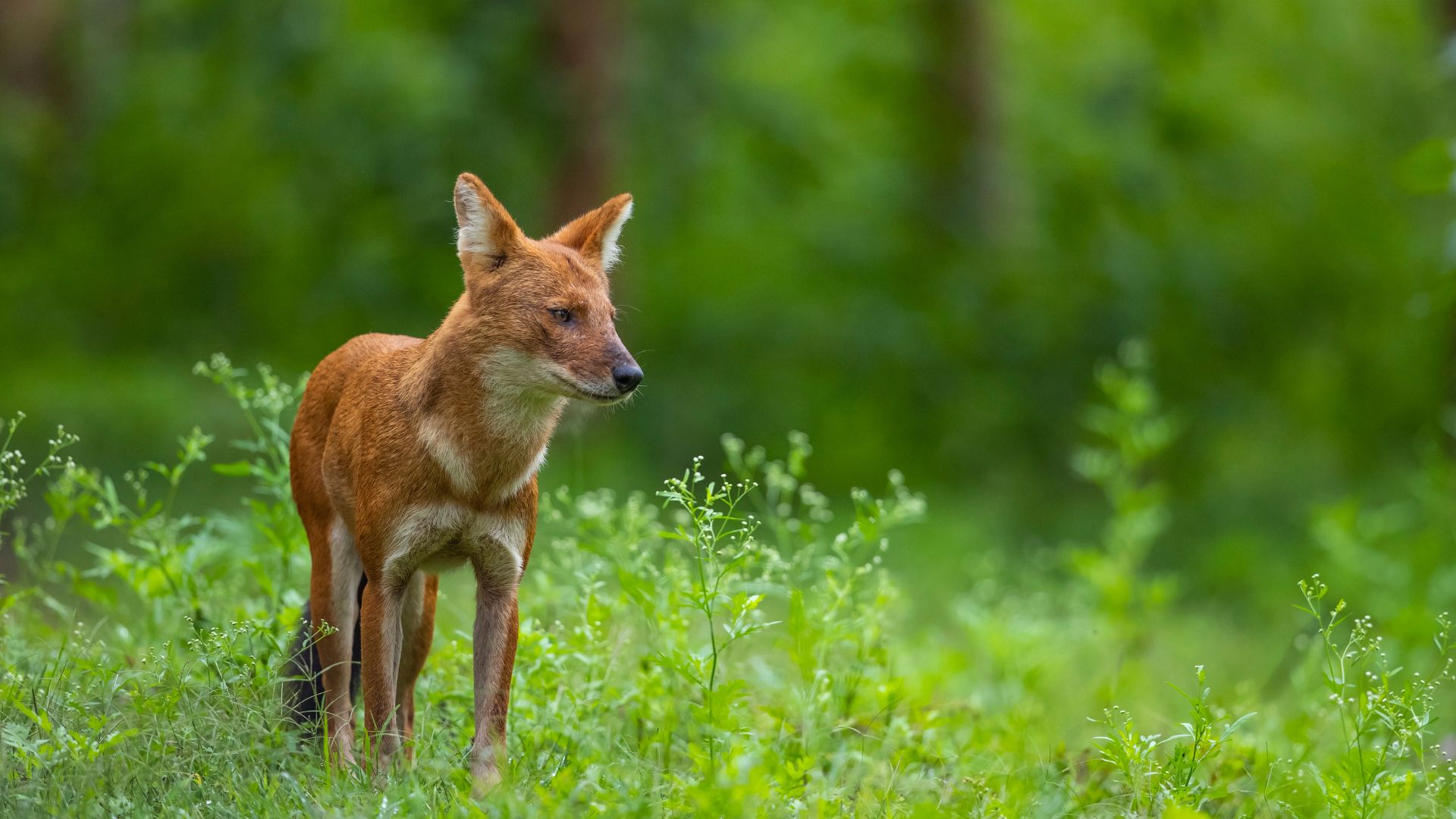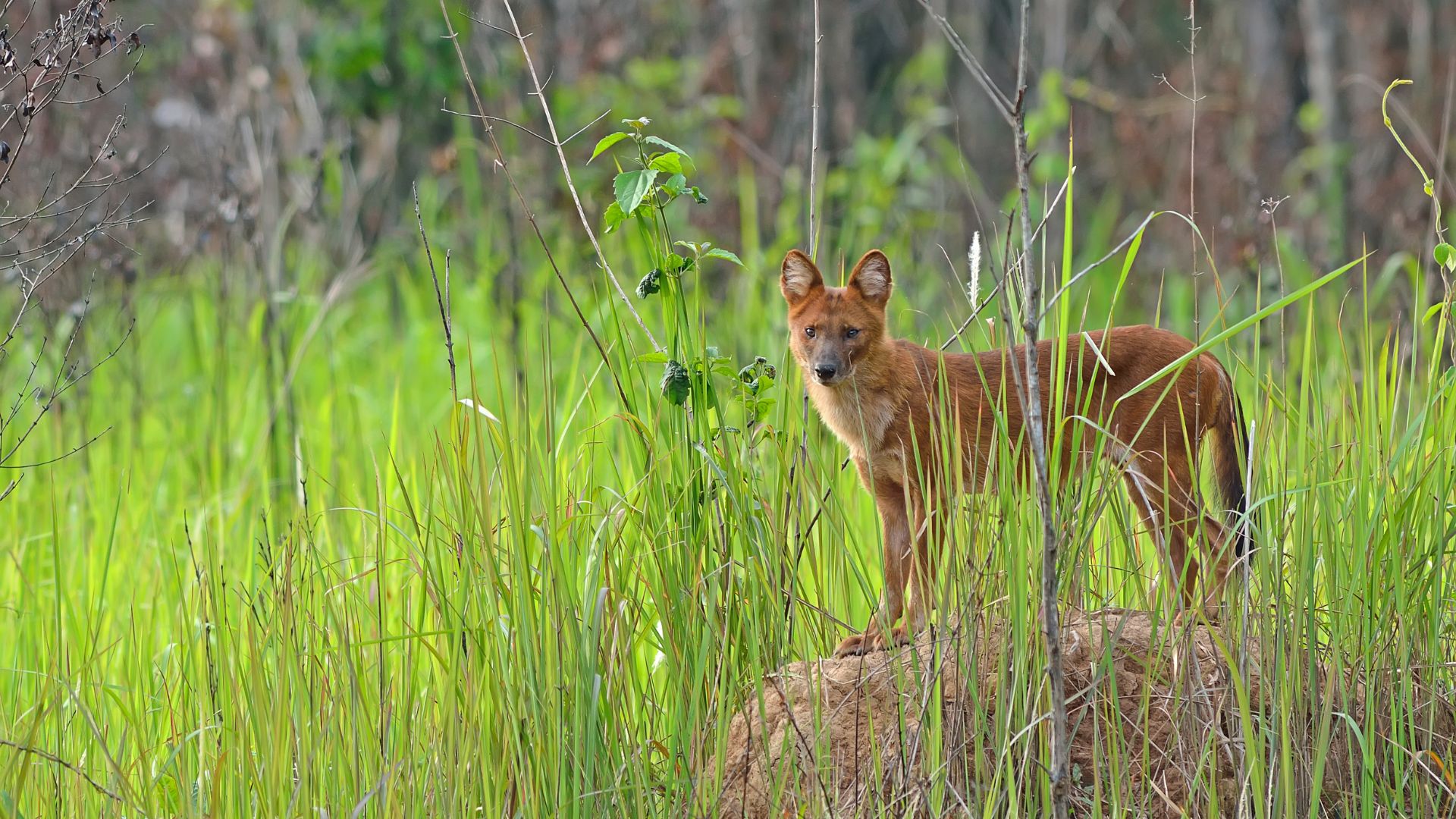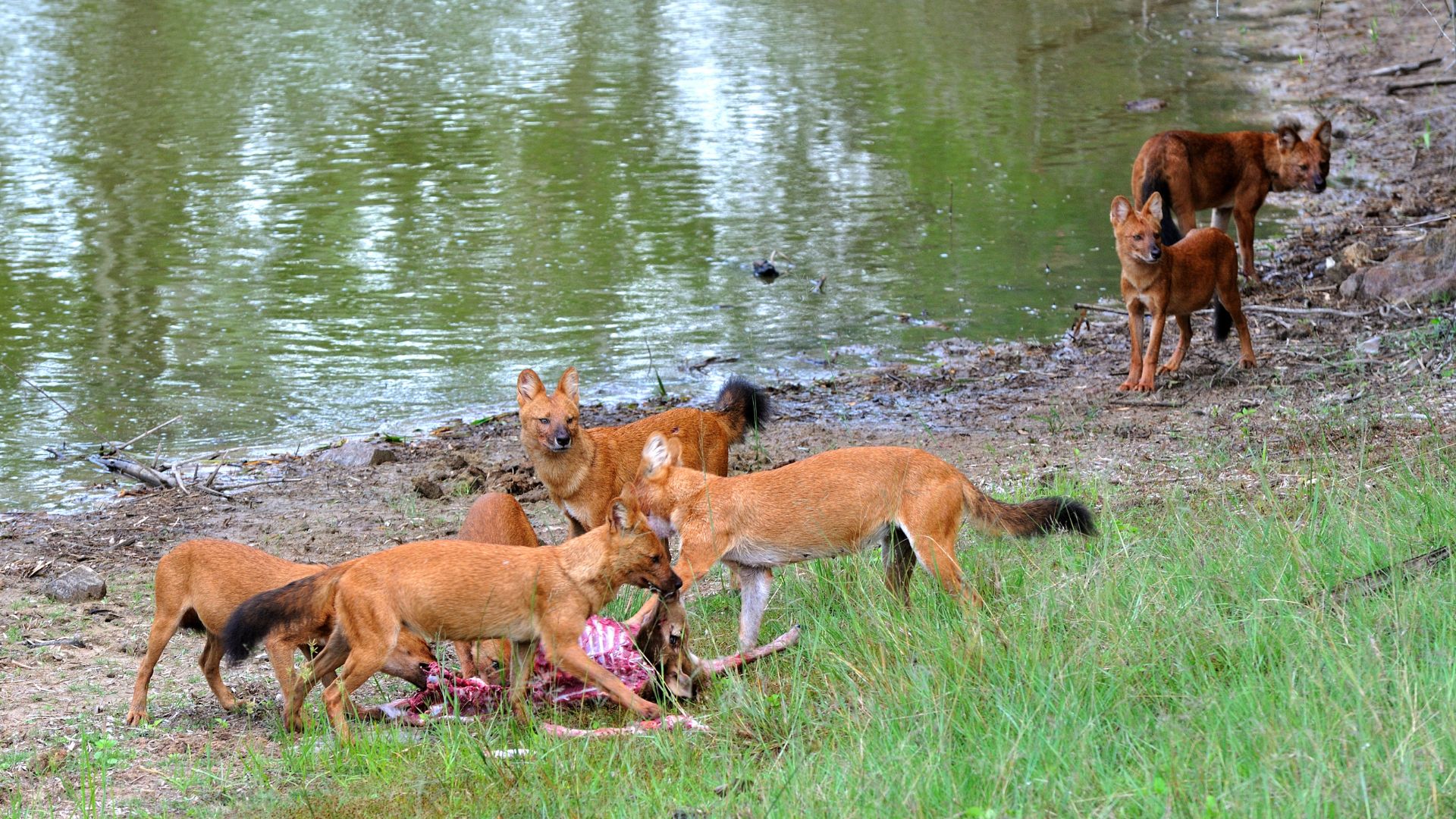Asiatic wild dogs, also called ‘dholes’, are wild members of the dog family, found in the forests of South and Southeast Asia. With only 1000–2000 adult, mature individuals (capable of reproducing) remaining in the world, they are listed as ‘Endangered’ by the International Union for Conservation of Nature (IUCN). Dholes are very social and live in families or ‘packs’ of 2–24 individuals. They are also highly vocal animals, and use sounds to communicate while interacting with each other and during their hunts. They are known for their unique whistling sound, which has also earned them the term ‘whistling dogs’. These fierce and agile hunters have received very little conservation efforts because they are often overshadowed by other charismatic species such as tigers and leopards.

Dholes are habitat-sensitive and are usually found in protected forests. They are also very shy and elusive, and avoid areas with high human disturbance. Small populations of dholes do occur in tea and coffee estates abutting rainforests in the Western Ghats of India. Tea plantations act as secondary habitats for dholes because these estates typically have perennial water bodies and support dhole-prey species such as sambars and gaurs. These small dhole populations outside protected forests are important to maintain connectivity between populations that live in protected areas. They ‘absorb’ individuals moving from populations within protected areas, and individuals from these tea estate packs move into populations within protected areas as well.

Agroforest-plantations like coffee and tea estates are human-dominated areas. In such locations, carnivores must navigate through several challenges to live and persist. Dholes are particularly vulnerable to human disturbances because they are diurnal, i.e., they are active during the daytime.

The Dhole Project is aimed at documenting and understanding the ecology and behaviour of dholes in human-dominated landscapes. Our goal is to identify dhole-friendly spaces within forest-tea-coffee mosaic landscapes. Doing so will enable us to prioritise areas for dhole conservation outside protected areas. Currently there are no conservation management plans for dholes in India. The data generated from this project will be an important step in devising such a plan and aiding the conservation of the underdogs of India’s wildlife.
Support us